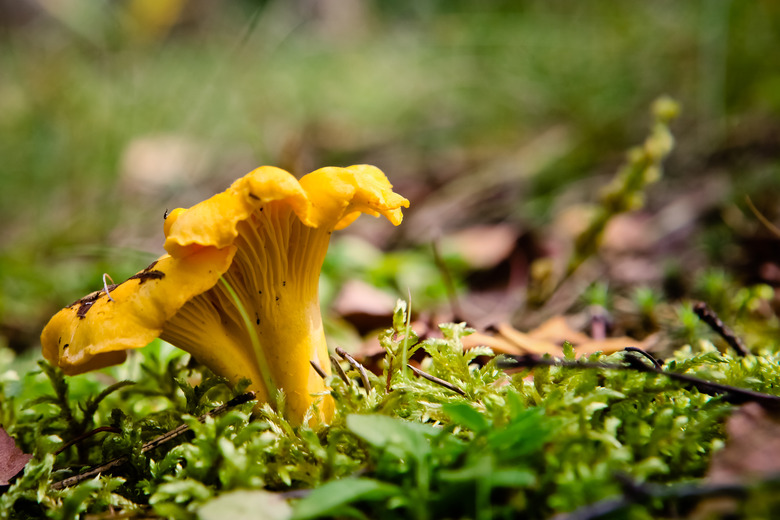What Role Do Decomposers Play In A Food Chain?
Every part of an ecosystem is vital to its survival – from the green plants to furry animals and microscopic bacteria. The group of organisms called decomposers forms the final link in the food chain. They break down dead animals and plants and return vital nutrients to the soil. Some decomposers, like fungi, can be seen without a microscope, but much of the decomposition process is carried out by microscopic bacteria.
TL;DR (Too Long; Didn't Read)
**TL;DR** Think of decomposers as an ecosystem's maintenance crew. Without decomposers, dead animal carcasses would pile up, and the soil would lack nutrients plants need to grow– the entire ecosystem would break down without this vital component of the food chain.
The Food Chain
The Food Chain
The food chain starts with energy from the sun, which is captured by plants and converted into fuel through photosynthesis. Primary consumers eat plants, and secondary and tertiary consumers feed on primary consumers. At the end of the chain, decomposers act as the "clean-up crew" – they consume dead animal carcasses, decaying plant material and waste products from other members of the ecosystem. Earthworms, for example, take in soil and microorganisms and excrete waste filled with nutrients, which are added to the soil. Fungi absorb nutrients from the plants and animals they consume while releasing enzymes that break down dead organic matter.
Nutrient Cycling
Nutrient Cycling
Decomposers play a vital role in the food chain and give it a cyclical nature. Plants need sunlight and nutrients in the soil for photosynthesis, and decomposers are responsible for returning nutrients from dead organic matter back into the soil; the living things at the beginning of the food chain rely on processes at the end of the chain. Elements such as carbon, nitrogen and phosphorus enter the food chain as plants obtain them from the soil. Animals acquire these substances by eating plants or other animals. Through a process of decomposition or mineralization, decomposers, particularly bacteria, return these elements to the soil in their inorganic state, so they are constantly recycled through the ecosystem.
Nitrogen Fixation
Nitrogen Fixation
Nitrogen is an essential nutrient for an ecosystem. Bacteria are responsible for a process called nitrogen fixation, which turns nitrogen into a form that can be used by other living things in the food chain. In this process, bacteria turn gaseous nitrogen in the atmosphere into ammonia, nitrate and nitrite, which makes nitrogen biologically available to plants. Some plants, such as legumes, have symbiotic relationships with a type of bacteria called rhizobium; the bacteria live in nodules in the roots of these plants, and in return, the bacteria fix nitrogen that the legumes can consume .
Cite This Article
MLA
Batema, Cara. "What Role Do Decomposers Play In A Food Chain?" sciencing.com, https://www.sciencing.com/role-decomposers-play-food-chain-13124/. 23 April 2018.
APA
Batema, Cara. (2018, April 23). What Role Do Decomposers Play In A Food Chain?. sciencing.com. Retrieved from https://www.sciencing.com/role-decomposers-play-food-chain-13124/
Chicago
Batema, Cara. What Role Do Decomposers Play In A Food Chain? last modified March 24, 2022. https://www.sciencing.com/role-decomposers-play-food-chain-13124/
